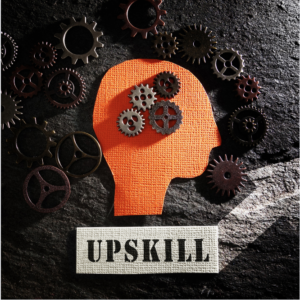Is your job making you sick?
Most people have to cope with stress on the job from time to time.
The problem is that if stress goes unmanaged, its impact will not only affect the quality of your work, but it could also end up making you sick.
Take a look as we break down what serious work-related stress actually is, its key causes, and tips for stress management to help get you through the work day.
What does work stress look like?
“Work stress is more than simply feeling challenged,” says Dr. David Ballard, assistant executive director for organisational excellence at the American Psychological Association (APA). “It occurs when there is a mismatch between the demands of the job and the resources someone has available to deal with those demands.”
In the 2017 survey, 37 per cent of respondents reported experiencing chronic work stress, meaning that it’s always there, looming in the background. “Chronic stress can wear employees down mentally and physically and can wind up damaging their health, relationships, and job performance,” says Ballard.
When it goes untreated, such as if you remain in a job that’s making you physically ill, stress can lead to burnout and breakdowns. If you’re unhappy at work and experiencing some combination of the following symptoms, your job could very well be hazardous to your health:
- Exhaustion
- Lack of motivation
- Cynicism and other negative emotions
- A decline in job performance
- Problems with interpersonal relationships at home and work
- Being preoccupied with work during leisure time
- Decreased life and work satisfaction
- Recently diagnosed health problems
Why so stressed?
When it comes to chronic work stress, the kind that causes physical symptoms and a daily dread whenever you’re at work, there are a few common culprits. Take a look at some of the top cited underlying sources of work stress:
Feeling overworked and underpaid
The top work stressors identified in the APA survey were low pay, followed by lack of opportunity for growth and advancement, a heavy workload, and unclear or unrealistic job expectations. And since money is also identified as a top stressor in the survey year after year and work is the primary source of income, those two can be related as well, says Dr. Ballard.
Tech overload
People also say that the inability to unplug from work is a big stress driver. “More than one-third of working Americans said communication technology increases their workload and makes it more difficult to stop thinking about work and take a break,” says Dr. Ballard.
Limited resources
Two-thirds of Americans frequently work at high speeds or under tight deadlines, and one in four perceives that they have too little time to do their job, according to RAND Corporation’s 2015 Working Conditions in the United States survey.
“There were also some interesting findings about the inability to adjust work schedules to attend to personal matters, and half of people say they work during personal time to meet workplace demands,” says Kathleen J. Mullen, a senior economist for the RAND Corporation.
Hostile working environments
“A surprising finding was how many people reported some measure of hostility in their workplace,” says Mullen. In fact, one in five people cited a hostile or threatening social environment at work, which could entail anything from sexual harassment to bullying and even physical abuse.
Often, it’s a bad boss at the heart of such matters. “Bosses can have a huge impact on day to day work life, and how miserable or happy you are with what you do,” says Mullen.
How to cope
Every job will have some level of stress, but if you’re having trouble getting through the day, there are some things you can try. Here, Ballard shares his top work stress-busting strategies.
During the day, make sure you:
Seek support. Talking through work challenges with your boss and/or co-workers, can help counteract the stress of long hours when you’re on deadline, or other factors that are out of your control, says Mullen.
Say no to multitasking. Sometimes having too many “mental tabs” open can feel overwhelming. Turn off push notifications and alerts for all but essential communication channels, so you can give what you are doing your full attention, says Dr. Ballard.
Take breaks. Throughout the day, pause for a minute or two to stand up, stretch, breathe deeply, and shake off the tension. Also, avoid the temptation to work through lunch, says Dr. Ballard.
After hours:
Pencil in relaxation time. “Whether it’s yoga, meditation, listening to music, reading a book, taking a walk, or visiting with friends and family, do something that actively helps you unwind,” says Dr. Ballard.
Get enough sleep. Research suggests that having less than six hours of sleep per night is a major risk factor for burnout.
Focus on the good. Four out of five respondents in the RAND survey said that their job met at least one definition of “meaningful” always or most of the time.
Thinking about the positive aspects of your job on a tough day—whether it’s the personal satisfaction your work brings you or the friendships you’ve made at the office—can help, says Mullen.
The fact is workplace stress is inevitable—you just have to figure out if you’re experiencing it at a level that is beyond what you can handle. “People differ in terms of what is optimal for them,” says Dr. Ballard, “so the same amount of pressure might energise and focus one employee, but completely overwhelm and impair the functioning of another.”



